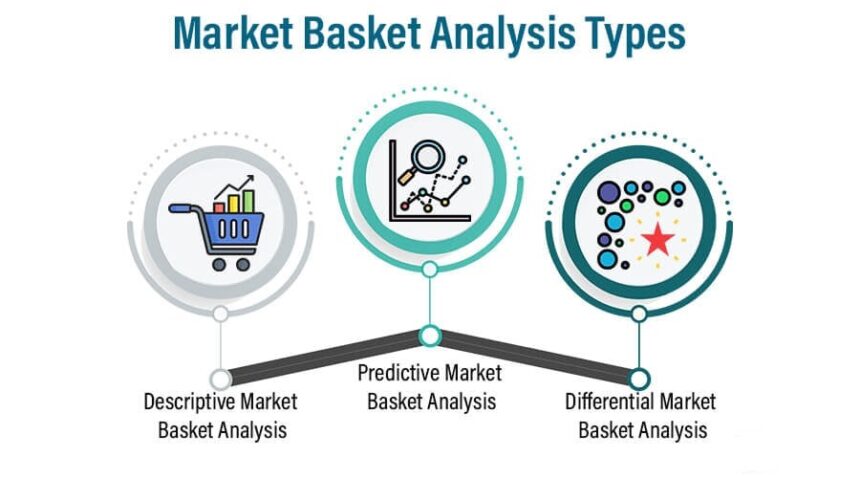AI-Powered Market Basket Analysis for Nigerian Retailers: Identifying Product Affinities
In the rapidly evolving retail landscape of Nigeria, staying ahead of consumer trends is crucial for success. With a population exceeding 200 million and a growing middle class, Nigerian retailers face both opportunities and challenges in meeting diverse customer demands. One innovative approach gaining traction is AI-powered Market Basket Analysis (MBA), a data-driven technique that uncovers product affinities—patterns of items frequently purchased together. This article explores how Nigerian retailers can leverage AI to enhance customer experiences, optimize inventory, and boost sales through identifying these affinities.
- AI-Powered Market Basket Analysis for Nigerian Retailers: Identifying Product Affinities
- What is Market Basket Analysis?
- The Role of AI in Market Basket Analysis
- Benefits of AI-Powered MBA for Nigerian Retailers
- Challenges and Solutions
- Practical Applications in the Nigerian Context
- Case Study: A Hypothetical Nigerian Retail Success
- Future Trends and Opportunities
- Getting Started with AI-Powered MBA
- Related article: The AI Side Hustle Gold Rush (2025 Q1 Stats)
- Conclusion
What is Market Basket Analysis?
Market Basket Analysis is a data mining technique rooted in association rule learning. It identifies relationships between products based on transaction data, answering questions like, “If a customer buys yam flour, are they also likely to purchase palm oil?” Traditionally, this method relied on manual analysis or basic statistical tools, but the integration of artificial intelligence (AI) has revolutionized its potential. AI enhances MBA by processing vast datasets in real-time, uncovering hidden patterns, and providing actionable insights tailored to the Nigerian market.
For Nigerian retailers, where consumer behavior varies across regions—urban Lagos versus rural Kano—AI-powered MBA offers a scalable solution. By analyzing purchase histories from supermarkets, local markets, and e-commerce platforms, retailers can predict buying patterns, optimize product placements, and design targeted promotions.
The Role of AI in Market Basket Analysis
AI transforms Market Basket Analysis from a static tool into a dynamic, predictive system. Here’s how:
1. Advanced Pattern Recognition
AI algorithms, such as machine learning models and neural networks, can detect complex relationships that simple association rules might miss. For instance, AI might reveal that customers buying egusi soup ingredients (melon seeds, stockfish, and vegetables) during festive seasons are also likely to purchase soft drinks, a trend not immediately obvious.
2. Real-Time Insights
Unlike traditional MBA, which often requires batch processing, AI enables real-time analysis. This is critical in Nigeria’s fast-paced retail environment, where seasonal demands (e.g., during Christmas or Ramadan) can shift quickly. Retailers can adjust stock and promotions on the fly, ensuring they meet customer needs efficiently.
3. Personalization at Scale
AI-powered MBA allows retailers to segment customers and personalize recommendations. For example, a Lagos-based retailer might notice that urban shoppers pairing imported wines with cheese are different from those in Enugu buying local palm wine with roasted plantain. AI tailors marketing campaigns to these segments, increasing conversion rates.
4. Predictive Analytics
Beyond identifying current affinities, AI predicts future trends. By analyzing historical data alongside external factors like weather or economic conditions, retailers can anticipate demand spikes—e.g., more garri purchases during a dry season in the North.
Benefits of AI-Powered MBA for Nigerian Retailers
Boosting Sales Through Cross-Selling
One of the primary advantages of MBA is its ability to drive cross-selling. If data shows that customers buying rice often purchase tomato paste, retailers can place these items together or offer bundle discounts. In Nigeria, where staple foods like rice, beans, and yam dominate purchases, such strategies can significantly increase basket sizes.
Optimizing Inventory Management
Overstocking or understocking can be costly. AI-powered MBA helps Nigerian retailers maintain optimal inventory levels by predicting which products are likely to sell together. For instance, a retailer in Ibadan might stock more groundnut oil alongside vegetable stew ingredients based on affinity data, reducing waste and stockouts.
Enhancing Customer Satisfaction
By understanding product affinities, retailers can improve the shopping experience. Placing complementary items like pepper soup spices next to fresh fish in a market stall or online cart can save customers time and enhance satisfaction, fostering loyalty in a competitive market.
Competitive Edge in E-Commerce
With the rise of online shopping platforms like Jumia and Konga in Nigeria, AI-powered MBA gives e-commerce retailers an edge. Personalized product recommendations based on past purchases—e.g., suggesting chin-chin with a bottle of malt drink—can increase average order values and repeat purchases.
Challenges and Solutions
Data Quality and Availability
A major challenge in Nigeria is the inconsistency of transaction data, especially in informal markets. Retailers can address this by investing in point-of-sale (POS) systems and training staff to ensure accurate data entry. Partnering with fintech companies for digital payment tracking can also improve data quality.
Infrastructure Limitations
Limited internet connectivity, particularly in rural areas, can hinder real-time AI processing. Cloud-based AI solutions with offline capabilities or edge computing can mitigate this, allowing retailers to analyze data locally before syncing with central systems.
Cost of Implementation
Adopting AI technology requires initial investment. However, Nigerian retailers can start small with open-source AI tools or collaborate with local tech startups to develop affordable, customized MBA solutions tailored to their needs.
Practical Applications in the Nigerian Context
Supermarkets and Hypermarkets
Large retailers like Shoprite or local chains can use AI-powered MBA to optimize shelf layouts. For example, placing sachet water near snacks in high-traffic aisles can capitalize on the affinity between thirst-quenching and snacking habits observed in urban centers.
Local Markets
In traditional markets like Mile 12 in Lagos, where transactions are often cash-based, mobile apps with AI integration can help vendors track sales. If data shows a frequent purchase of smoked fish with yam, vendors can adjust their stock or offer combo deals.
E-Commerce Platforms
Online retailers can leverage AI to suggest add-ons during checkout. For instance, if a customer adds pounded yam flour to their cart, the system might recommend egusi soup mix, increasing the likelihood of a complete meal purchase.
Case Study: A Hypothetical Nigerian Retail Success
Imagine a mid-sized retailer in Abuja, “Nigerian Grocer,” implementing AI-powered MBA. By analyzing six months of transaction data, the AI identifies that customers buying jollof rice ingredients (rice, tomatoes, and spices) often add chicken or beef. The retailer repositions these items together, offers a 10% discount on bundles, and promotes the deal via WhatsApp—a popular channel in Nigeria. Within three months, basket sizes increase by 15%, and customer retention improves due to the convenience and savings.
Future Trends and Opportunities
Integration with Mobile Technology
With over 70% of Nigerians owning smartphones, integrating AI-powered MBA with mobile apps can enhance accessibility. Retailers can send push notifications about affinity-based deals, such as discounts on plantain chips when buying beer.
Collaboration with Local Producers
AI can identify affinities involving locally produced goods (e.g., palm wine with roasted yam). Retailers can partner with local farmers and producers to stock these items, supporting the economy while meeting consumer preferences.
Sustainability Focus
As environmental consciousness grows, AI can highlight affinities that promote sustainable choices—e.g., pairing reusable bags with bulk grain purchases—aligning with global trends and appealing to eco-minded Nigerian shoppers.
Getting Started with AI-Powered MBA
Step 1: Collect and Clean Data
Gather transaction data from POS systems, online sales, or manual records. Use basic tools to clean the data, removing duplicates and errors.
Step 2: Choose the Right Tools
Opt for AI platforms like Python with libraries (e.g., Pandas, Scikit-learn) or commercial solutions like SAP or IBM Watson, depending on budget and scale.
Step 3: Train and Deploy Models
Work with data scientists or AI consultants to train models on Nigerian-specific data. Deploy the system to analyze affinities and generate reports.
Step 4: Monitor and Refine
Continuously monitor performance, gathering feedback from sales teams and customers to refine the AI model for better accuracy.
Related article: The AI Side Hustle Gold Rush (2025 Q1 Stats)
Conclusion
AI-powered Market Basket Analysis is a game-changer for Nigerian retailers, offering a pathway to identify product affinities, enhance customer satisfaction, and increase profitability. By leveraging advanced algorithms, real-time insights, and personalized strategies, retailers can stay competitive in a dynamic market. Despite challenges like data quality and infrastructure, the opportunities—boosted sales, optimized inventory, and stronger customer loyalty—make this technology worth exploring. As Nigeria’s retail sector continues to grow, embracing AI-powered MBA will be key to unlocking its full potential.
For retailers ready to dive in, the journey starts with data collection and a willingness to adapt. Whether you’re a supermarket chain in Lagos, a vendor in Onitsha, or an e-commerce startup, AI can transform how you understand and serve your customers. Start small, scale smart, and watch your business thrive with the power of AI-driven insights.






